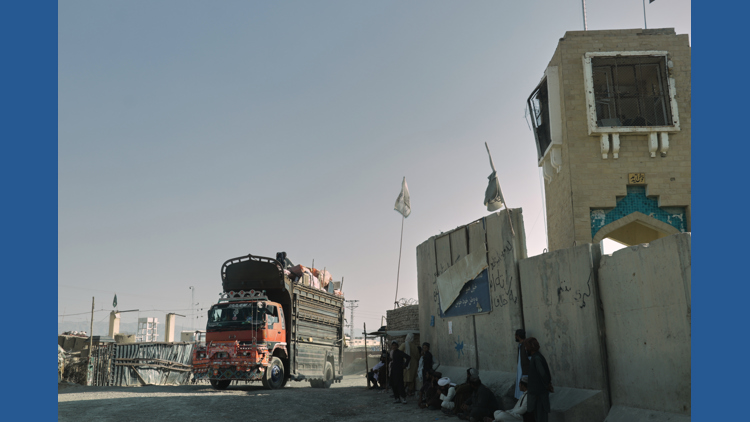Politics
Turkey Mediation Fails as Pakistan-Afghanistan Peace Talks Stalemate

Peace talks hosted by Turkey between Pakistan and Afghanistan have reached a stalemate after three days of negotiations in Istanbul. Both countries’ state media reported on Tuesday that they are blaming each other for the inability to reach an agreement, even as Turkish officials continue their efforts to resolve the deadlock.
These talks are part of a broader diplomatic initiative aimed at alleviating escalating tensions between Islamabad and Kabul, primarily stemming from issues related to cross-border attacks and the presence of militant safe havens. Relations have been strained since the Taliban regained power in Afghanistan four years ago. Although delegations from both nations remain in Turkey, it remains uncertain whether discussions will extend into a fourth day.
On Tuesday morning, Pakistan Television reported that Turkish officials, alongside representatives from other nations, are striving to uphold a ceasefire that was agreed upon on October 19, 2023, in Doha. This agreement followed a series of deadly clashes resulting in the deaths of dozens of soldiers, militants, and civilians from both sides.
According to three Pakistani security officials who spoke to the Associated Press, the talks have stalled due to the Afghan delegation’s hesitance to accept what they view as logical and legitimate demands from Pakistan—specifically, assurances that Afghan territory will not be used for hostile actions against Pakistan. These officials requested anonymity as they were not authorized to address the media.
Sources indicated that the Taliban delegation has shown reluctance to fully embrace Pakistan’s proposals and continues to seek guidance from Kabul before making critical decisions. There has been no immediate response from Afghan authorities regarding these claims.
Afghanistan’s state media, RTA, countered the narrative by asserting that Kabul has made every effort to engage in constructive discussions, while accusing the Pakistani side of lacking a similar intention.
As the talks in Turkey unfolded, U.S. President Donald Trump pledged on Sunday to assist in swiftly resolving the ongoing crisis between the two neighboring countries. The recent hostilities prompted Qatar to facilitate the initial round of talks, which resulted in a ceasefire that both parties claim is still in effect, despite the current impasse in Istanbul.
No official statements regarding the status of the negotiations have been issued by either side. Islamabad-based security analyst Syed Mohammad Ali commented that Afghanistan’s approach appears to be aimed at prolonging the diplomatic process and diverting attention to other bilateral issues. He highlighted Afghanistan’s unwillingness to provide a clear, verifiable commitment to act against the Tehrik-e-Taliban Pakistan (TTP) and other militants based in Afghanistan.
Pakistan has experienced a rise in militant attacks in recent years, largely attributed to the TTP, which is closely aligned with the Taliban. Islamabad claims that the TTP is receiving sanctuary in Afghanistan following the Taliban’s takeover in 2021. In light of this, Pakistani military operations earlier this month targeted TTP hideouts within Afghanistan, leading to intense clashes until Qatar brokered the ceasefire.
Currently, all border crossings between Pakistan and Afghanistan remain closed, leaving numerous trucks carrying goods stranded and awaiting the reopening of vital trade routes. The ongoing diplomatic efforts in Turkey are crucial, as both nations seek to stabilize their relationship and address the underlying issues that have fueled violence and unrest in the region.
-

 Science2 weeks ago
Science2 weeks agoIROS 2025 to Showcase Cutting-Edge Robotics Innovations in China
-

 Politics2 weeks ago
Politics2 weeks agoJudge Considers Dismissal of Chelsea Housing Case Citing AI Flaws
-

 World2 weeks ago
World2 weeks agoBravo Company Veterans Honored with Bronze Medals After 56 Years
-

 Top Stories2 weeks ago
Top Stories2 weeks agoIndonesia Suspends 27,000 Bank Accounts in Online Gambling Crackdown
-

 Lifestyle2 weeks ago
Lifestyle2 weeks agoStone Island’s Logo Worn by Extremists Sparks Brand Dilemma
-

 Health2 weeks ago
Health2 weeks agoStartup Liberate Bio Secures $31 Million for Next-Gen Therapies
-

 Sports2 weeks ago
Sports2 weeks agoMel Kiper Jr. Reveals Top 25 Prospects for 2026 NFL Draft
-

 World2 weeks ago
World2 weeks agoHoneywell Predicts Record Demand for Business Jets Over Next Decade
-

 Health2 weeks ago
Health2 weeks agoTop Hyaluronic Acid Serums for Radiant Skin in 2025
-

 Politics2 weeks ago
Politics2 weeks agoNew Jersey Voters Urged to Register Ahead of November Election
-

 Sports2 weeks ago
Sports2 weeks agoYamamoto’s Mastery Leads Dodgers to 5-1 Victory in NLCS Game 2
-

 Lifestyle2 weeks ago
Lifestyle2 weeks agoMary Morgan Jackson Crowned Little Miss National Peanut Festival 2025









